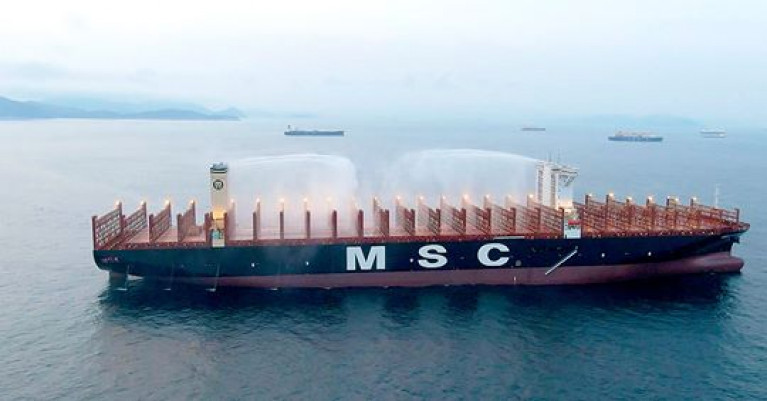Displaying items by tag: Lowest CO2 per container
Global Container Giant MSC Expands Carbon-Neutral Programme to Clients Worldwide in 2020
Following a successful implementation in selected countries, global container line Mediterranean Shipping Company (MSC) is now extending its the MSC Carbon Neutral Programme to clients worldwide throughout 2020.
Since early 2019, MSC has partnered with leading global climate solutions provider South Pole to develop the MSC Carbon Neutral Programme, an initiative which it claims “complements MSC’s strategic approach to sustainability and massive investment in reducing emissions across its fleet”.
MSC said it was the first major shipping line in 2019 to offer an option to fully compensate the unavoidable carbon emissions caused by the transport of their cargo through supporting climate protection projects managed by South Pole. MSC highlighted that it recently completed the launch of the largest class of container ships which produce the lowest CO2 emissions per container carried by design – MSC’s Gülsün Class.
For much more LloydsLoadingList reports here.
In addition to Afloat coverage of a European Commission first, a report on CO2 emissions from maritime transport - that estimates merchant ships added over 138 million tonnes to EU carbon emissions in 2018.
Afloat adds that the landlocked shipping giant based in Switzerland acquired ICG's Oscar Wilde, operated by Irish Ferries on their Rosslare-Cherbourg/ Roscoff (seasonal) routes. The sale of the 1987 cruiseferry involved a bareboat hire purchase agreement with MSC to their ferry subidiary Grandi Navi Veloci (GNV) which renamed GNV Allegra under the Italian flag and operating a Genoa-Olbia (Sardinia) service.
Irish Ferries had Oscar Wilde operate the Rosslare based routes to France until 2018 however in the following year the introduction albeit late of newbuild W.B.Yeats onto the Dublin-Cherbourg route considerably enhanced the service with the 'cruiseferry''s summer sailings.
This compared to 'economy' based year-round sailings served by Italian flagged ropax Epsilon which recently returned full time on the Dublin-Holyhead route. While WB Yeats concentrates on high-season sailings.





























































